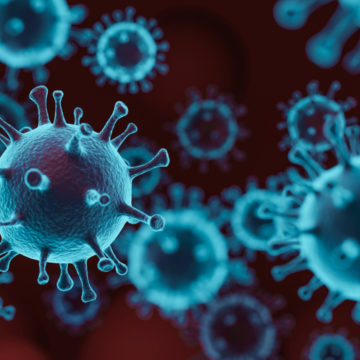
-
- Some countries have now found a new strain of Covid-19-causing coronavirus.
- While experts have been expecting this to happen, it is still very alarming.
- The new coronavirus variant is more contagious than the first one.
While the world is still doing all countermeasures to contain the coronavirus, here comes another new, mutated strain of Covid-19-causing coronavirus that could cause another worldwide fear.
Experts have now started working on gaining more knowledge about this new variant, and these are what they want the people to know.
1. Virus mutation is normal.

According to Daniel Rhoads, a microbiologist and pathologist, virus mutation is actually quite normal and constantly occurs, especially for viruses that contain a genetic material like coronaviruses and influenza viruses.
Viruses contain genetic material, either DNA or RNA, which help them replicate and multiply. When the virus enters the body via the nose or the mouth, the virus’s DNA or RNA enters the cell, making copies of itself to enter other cells and infect them. If there are too many infected cells and the immune system cannot wipe them out, that’s when you become sick.
In virus replication, errors could also happen, and the new cell virus does not have the same DNA sequence as the parent cell. This alteration or change is referred to as a mutation. Normally, the mutation causes no significant effect on the virus cells, but Rhoads explains that sometimes, a mutation can also help the virus easily enter a cell and duplicate. The genetic change is then carried when the virus replicates, and it eventually becomes a part of the virus’s genetic make-up. Over time, as more mutated cells are produced, it brings about a new variant of the virus strain.
2. As of now, there are already two new variants of coronavirus.

Recently, scientists have identified two new variants of coronavirus containing a different set of mutations. Although each variant has its own set of mutation, both have changes in their spike protein that allows them to attach to human cells easily. This results in their improved ability to infect people and be easily passed from one person to another, leading to the virus’s quicker spread.
3. The new variant is more than 50% more contagious than the original one.

While this is the case, Rhoads shares that the new variant being studied still looks very similar to the original strain used to develop and test the vaccines. According to Rhoads, this information is very reassuring as the vaccines can still be effective with the new variant. Still, experts are taking this seriously and are working very hard to gather information about this new variant and its impact on the current pandemic.
4. There is still no clear evidence that the new strain of coronavirus is deadlier.

Experts add that there is still no clear evidence that the new variant is deadlier, more contagious, and will have the possibility that vaccines will not work on them. But there is also a possibility that this situation can change over time as mutations happen over a period of time.
5. People should stay vigilant.

The new variants’ possible contagiousness prompts experts to warn people to stay more careful and follow preventive measures seriously like proper wearing of a mask, sufficient hand washing, limiting close contact, and getting vaccinated if possible. Rhoads shares that these measures will still continue to be effective.
Source: Cleveland Clinic
